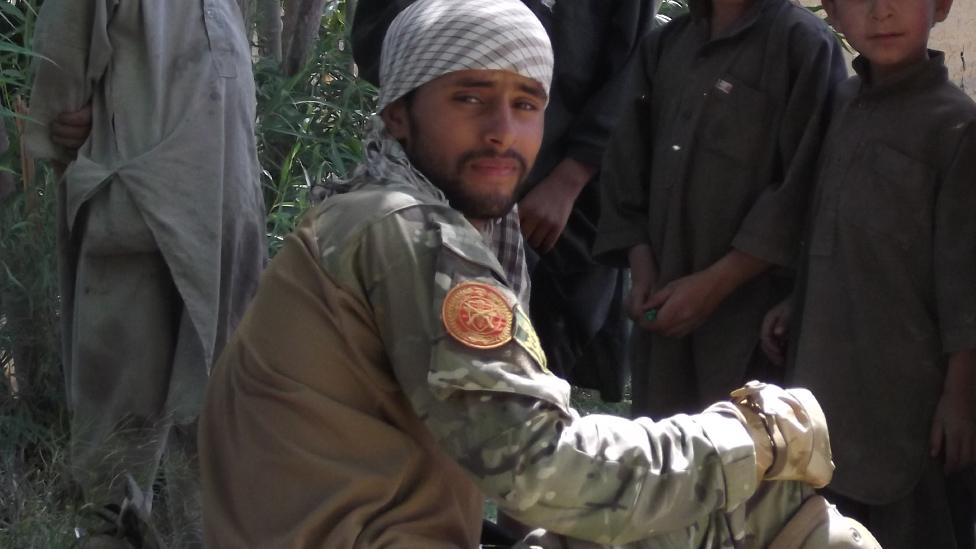Afghan interpreter Jamal Barak who was shot twice denied compensation
- Published
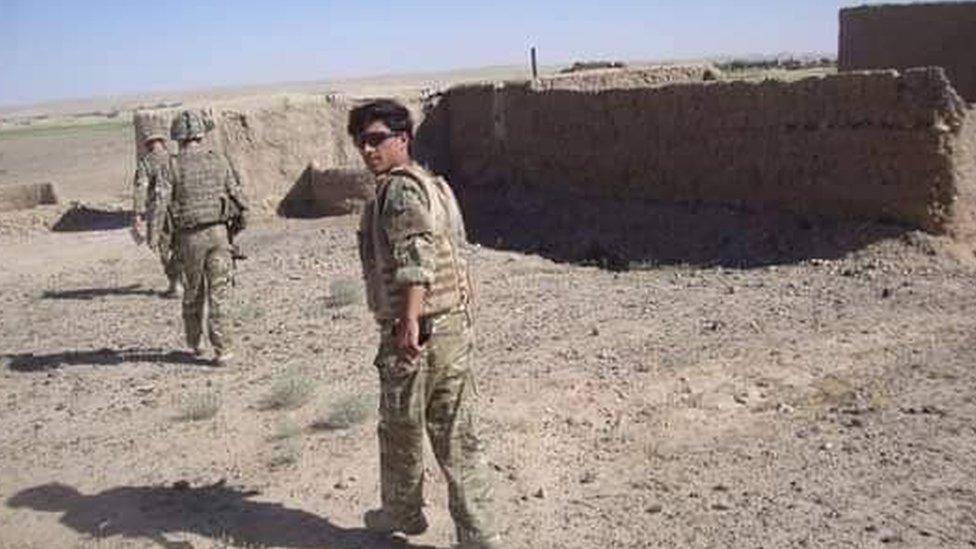
Jamal Barak was shot twice while supporting the British Army in Afghanistan
An Afghan interpreter who worked for the British Army has been denied compensation from the government after he was shot twice by the Taliban.
Jamal Barak, who moved to Coventry, was with the Army for eight years.
The Ministry of Defence (MoD) said it had paid out more than £3.3m to Afghans injured as a result of their employment with the military but Mr Barak was told he was not eligible for compensation.
The MoD said all claims were assessed by medical and legal experts.
Mr Barak was 17 when he first started working with the Army as an interpreter and served from 2008-2015.
He said he was shot twice, once in the chest and again in the back, while he worked with the Scots Guards in Helmand Province.
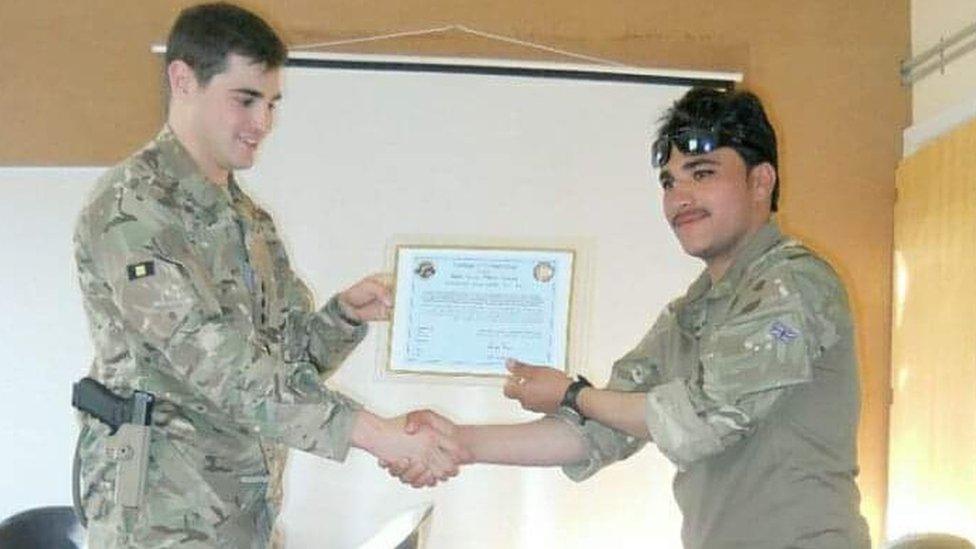
Mr Barak said he was still in pain after being shot by the Taliban
Although he has difficulty walking, been left unable to work and requires daily pain relief, he was told he was ineligible for government compensation.
He said he felt "so disappointed" to be denied compensation for his injuries.
"All the reasons they gave to me was that you have to have significant impairment or disability," he said.
"They want us to be a fully disabled person, we should have lost our legs or hands, then they'd be able to pay us the money."
The MoD's guidance, external states payments are not intended for people expected to recover or "where they may be left with some permanent or long-lasting impairment of a less serious nature, for example limited in either the degree of pain or loss of faculty".
While it was unable to comment on individual cases, a spokesperson said it was "committed to awarding appropriate ex-gratia medical payments to those brave people who worked alongside our soldiers on patrol" if it received "sufficient evidence".
Cases could be re-assessed if a victim's condition worsened, the MoD added.
"I'm urging the government to change the criteria," Mr Barak said, adding he would consider legal action if his case was not reconsidered.

Follow BBC West Midlands on Facebook, external, Twitter, external and Instagram, external. Send your story ideas to: newsonline.westmidlands@bbc.co.uk, external
Related topics
- Published26 August 2021
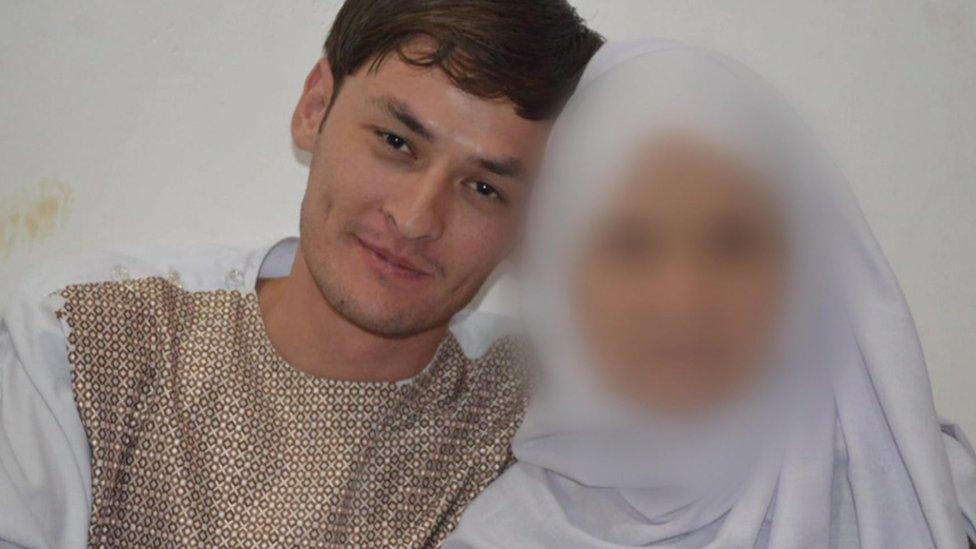
- Published16 June 2022
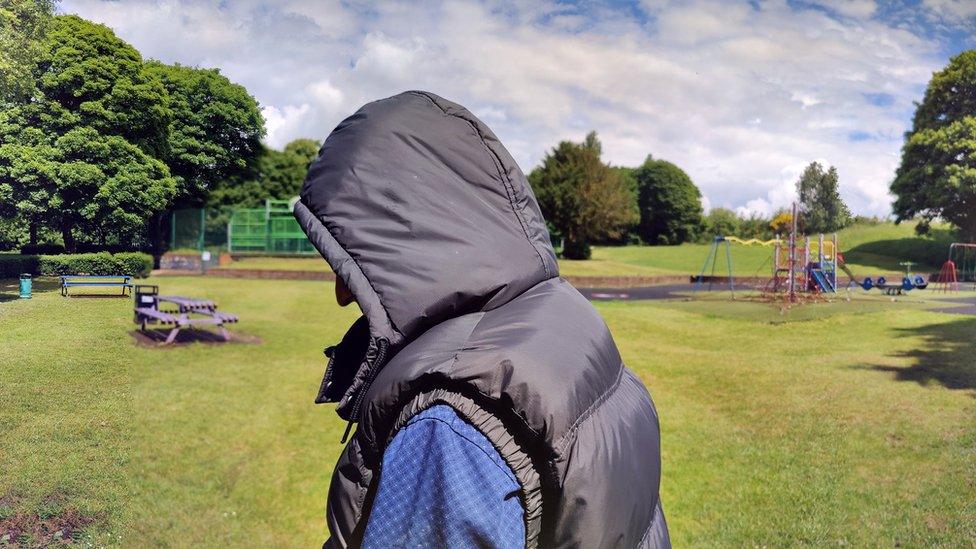
- Published4 May 2018
